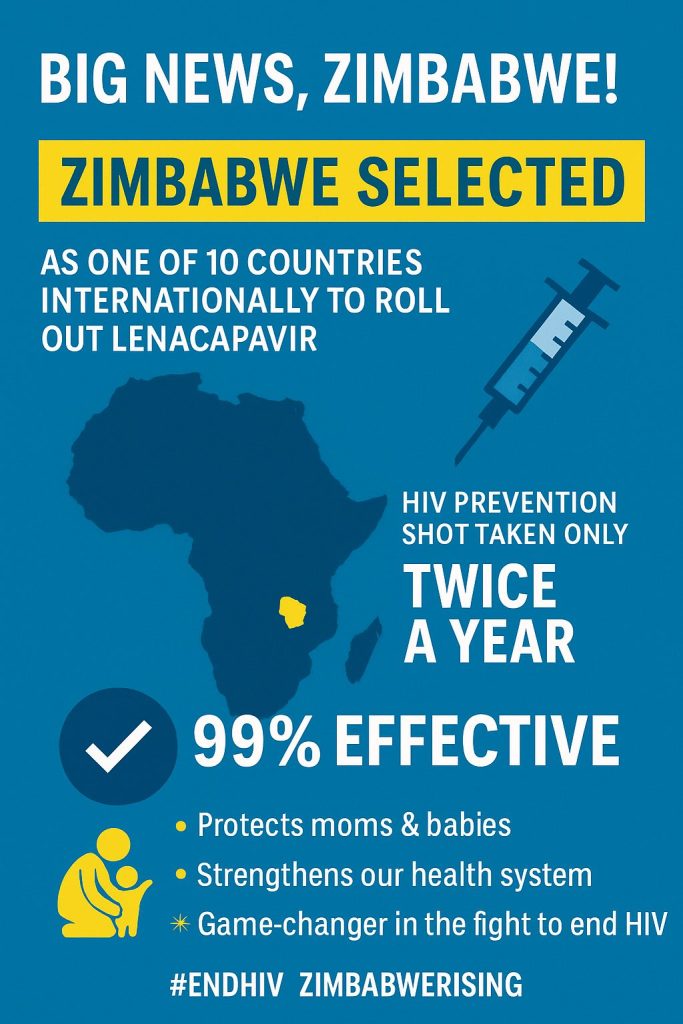By Fanuel Chinowaita

Zimbabwe has been selected as one of only 10 countries worldwide to introduce lenacapavir, the first twice-yearly HIV prevention medicine, in a move hailed as a major breakthrough in the global fight against the epidemic.
The development was confirmed by the United States Embassy in Harare, which described the rollout as a “historic step toward ending new HIV infections and protecting future generations.”
“Zimbabwe was selected as one of the ten countries globally to roll out lenacapavir, a breakthrough development in the fight against HIV.
For decades, we’ve fought to turn the tide against this epidemic, and each day we get closer,” the embassy said in a statement.
Lenacapavir, developed through a partnership between U.S.-based Gilead Sciences and the Global Fund, has shown more than 99 percent effectiveness in large-scale clinical trials at keeping people HIV-negative.
Health experts say the drug, administered twice a year, will be particularly significant in protecting pregnant and breastfeeding women, a group highly vulnerable to HIV transmission.
The rollout is expected to strengthen Zimbabwe’s healthcare system while improving accessibility and affordability of prevention treatments. “By making lenacapavir more affordable and accessible, no one is left behind,” the U.S. Embassy added.
Public health advocates say the breakthrough could save millions of lives globally and accelerate efforts to achieve an HIV-free generation.
“This is more than medicine—it advances us on a pathway to a safer, stronger, and healthier future,” the embassy noted.
